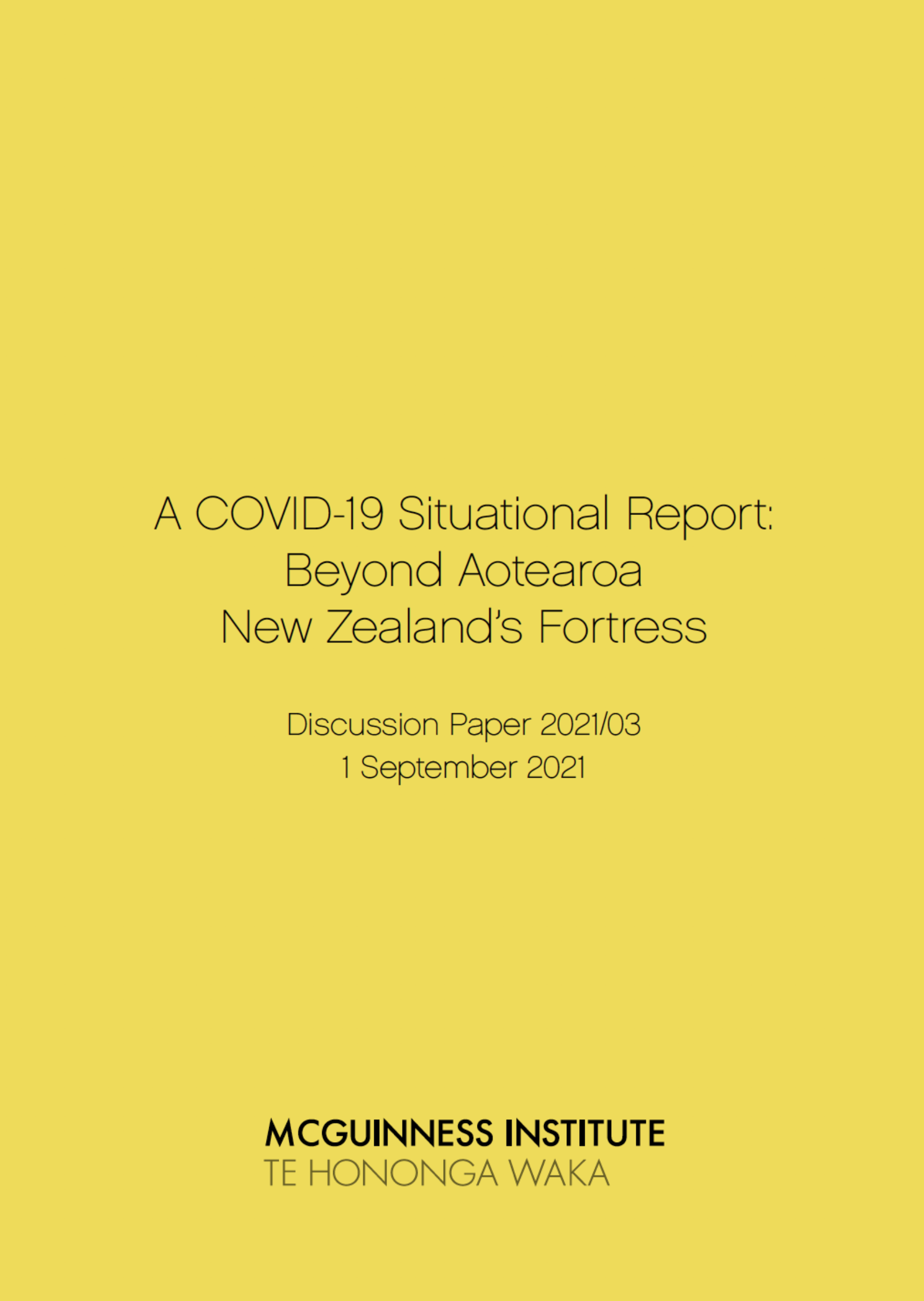1.0 Our 2021 work programme
The image below is not an exact representation of all the work completed in 2021. However, it provides an overview of the research and policy projects we have focused on. It also illustrates the way our three policy projects, ReportingNZ, Foresight NZ, and Strategy NZ, interlink with our seven research projects, ClimateChangeNZ, CivicsNZ, OneOceanNZ, PublicScienceNZ, TacklingPovertyNZ, TalentNZ and PandemicNZ.
2.0 Our Project 2058
Project 2058 is the Institute’s flagship project focusing on where Aotearoa New Zealand will be in the year 2058. In 2008, we selected the year 2058 to guide our thinking as it was far enough in the future to avoid self-interest, but close enough to realistically drive our work forward. Our three policy projects inform our seven research projects and vice versa; policy feeds research and research feeds policy. Where possible we aim to create a systems approach to our work and use lessons from the past. Understanding history and change is central to thinking clearly about possible futures.
3.0 Our three policy projects
Our policy projects were developed as a result of our observation that foresight drives strategy, strategy requires reporting, and reporting shapes foresight. In practice, each of these policy tools must work with the others if we want Aotearoa New Zealand to develop durable, robust and forward-looking public policy.
3.1 Project ForesightNZ
This project aims to explore Aotearoa New Zealand’s possible futures. Learn more about Project ForesightNZ here. Our ForesightNZ publications, initiatives and events this year have included:
June 2021: Think Piece 36 – Long-term insights briefings – once in a generation opportunity Written by CEO Wendy McGuinness, Roger Dennis and David Skilling, this think piece explores the importance of the new public policy instrument Long-term Insights Briefings, introduced by the Public Service Act 2002. The think piece examines the opportunity the briefings present for democracy, the necessary steps for writing a briefing and the challenges of doing so. The authors provide suggestions for how we can better prepare for the challenges and opportunities facing Aotearoa New Zealand in the future. The think piece can be viewed on our website here. The think piece was initially published by Newsroom on 8 June 2021 under the title ‘NZ’s once in a lifetime chance can’t be left to interns’. See here. The article attracted over 12,000 views on LinkedIn and comments from officials in Australia and the UK. It has formed the basis for subsequent publications and events, including the Long-term Insights Briefing: A novel instrument to deal with foresight panel discussion webinar and the parliament select committee training held in September, discussed later in this newsletter.
July 2021: Futures Thinking – Review into the Future for Local Government On 21 July 2021, Wendy presented to the Review into the Future for Local Government – Te Arotake i te Anamata mō Ngā Kaunihera panel. It explored the importance of futures thinking in local government, particularly for responding to COVID-19 and climate change, and the distinction between foresight and strategy. It also provided an overview of the literature on foresight, futures thinking and scenarios. To learn more about the presentation and to see the slide show, please view our website here. More information about the Review, including the Terms of Reference and panel members, can be found here.
August 2021: Establishing Aotearoa New Zealand’s Reference Climate Scenarios – who, what, when and how? This discussion, held on 18 August 2021, brought attendees online for two hours during day one of Alert Level 4. The discussion explored how government might support the development of reference climate scenarios, specifically related to Aotearoa New Zealand, in order to drive and shape decision-making by organisations and individuals. Attendees from a range of sectors shared their expertise and understandings. The discussion made it clear that a significant policy challenge exists. To view our initial observations from the discussion, please visit our website here. The Institute wishes to thank attendees for their time and engagement. We also thank Professor Nick Golledge (Antarctic Research Centre, Victoria University of Wellington) for providing a summary of the IPCC Sixth Assessment Report at the beginning of the discussion. Nick’s presentation can be viewed on our YouTube channel here. The slideshow can be viewed here. More information about the discussion and upcoming outputs from the discussion can be viewed on our website.
September 2021: Long-term Insights Briefings: A novel policy instrument to deal with foresight panel discussion webinar On 1 September, the Institute hosted the Long-term Insights Briefings: A novel policy instrument to deal with foresight panel discussion webinar, originally to be held at the National Library, and moved to webinar under Alert Level 4. The public event saw discussion by Wendy McGuinness, Roger Dennis and David Skilling about the long-term insights briefings. The discussion and concluding Q&A session was moderated by Professor Girol Karacoglu, Head of the School of Government at Victoria University of Wellington, and patron of the Institute. The panellists covered the need for future thinking in government, highlighted how corporations and countries apply foresight, and suggested a range of ways chief executives might prepare briefings. The recording of the webinar can be viewed here. For more information about the event, including the slideshow presentation, please visit our event webpage here. Following the webinar, the Institute prepared a survey for participants to understand their views and thoughts on the briefings and about futures thinking in government. The results of this survey were summarised and analysed in our Survey Insights: An analysis of the Long-term Insights Briefings Survey paper. We presented this paper at the parliament select committee chairs and deputy chairs training session on 21 September 2021. See here.
3.2 Project StrategyNZ
The aim of StrategyNZ is to contribute to a discussion on how to improve strategic decision-making, strategy stewardship and implementation, in both the private and the public sector. Strategy development explores the means to achieve a preferred future (the ends). When working on strategy, we tend to focus on values, objectives/goals, resources, capabilities, limitations, relationships, key results and actions (what to do and what not to do). Our StrategyNZ project can be viewed here.
March 2021: Mission Aotearoa: Mapping our future webinarOn 30 March, the Institute hosted Mission Aotearoa, in collaboration with Mariana Mazzucato and her team at the UCL Institute for Innovation & Public Purpose (IIPP) at University College London (UCL), and Callaghan Innovation. It marked the tenth anniversary of Sir Paul Callaghan’s keynote address at StrategyNZ: Mapping our future, where he challenged New Zealanders to think about the type of country we might like Aotearoa New Zealand to become. The webinar brought together leading international and New Zealand speakers specialising in futures thinking, sustainability, public policy and innovation. The list of speakers can be found on our website here. The discussion explored where Aotearoa New Zealand is now, our long-term future, and the strategies and innovations that New Zealanders can use to bring about change. The webinar can be viewed on our YouTube channel here. The two slideshows, Mission Aotearoa – Dennis Bushnell, and Mission Aotearoa – Rowan Conway (IIPP), along with further reading, can be found on our Mission Aotearoa webpage here.
April 2021: Working Paper 2021/02 – List of Government Department Strategies as at 31 December 2020 This working paper provides a list of government department strategies (GDSs) as at December 2020 (199 GDSs). The paper establishes our December 2020 GDS data set, on which our GDS publications are based. The working paper can be viewed on our website. More information about the GDS index and related publications and outputs can be viewed on our GDS Index NZ page here, and later in this blog.
June 2021: Discussion Paper 2021/01 – Mission Aotearoa: Mapping our future As a follow up to the Mission Aotearoa webinar, the Institute published this discussion paper summarising the ideas and outcomes of the webinar, featuring contributions from the speakers. The paper explores Aotearoa New Zealand’s potential to lead the way towards a sustainable future, becoming an international technological and innovation hub, and new mission-based approaches towards solving future challenges. The paper also answers questions raised in the webinar. To read the discussion paper, please visit our website here.
May 2021: Emissions Reduction Plan Strategy Mapping Workshop
On 21 May, the Institute held the Emissions Reduction Plan Strategy Mapping Workshop, bringing participants together to explore the creation of an emissions education plan strategy map. The four-hour workshop helped participants learn more about strategy mapping, and tested whether a strategy-mapping exercise followed by an assumption-mapping exercise could contribute to improving the design and communication of a strategy. The workshop slideshow, exercises and list of participants can be found here. The Institute wishes to thank participants for their time and interest. We were fortunate to have such a motivated and informed group. We thank the Ministry of Business, Innovation and Employment for their time and input. The outputs from the workshop were collated into a discussion paper titled Need for speed: strategy mapping and adaptive management. The paper, published in August, is discussed later in this newsletter.
August 2021: Discussion Paper 2021/02 – Need for speed: strategy mapping and adaptive management
This discussion paper is an output of the Emissions Reduction Plan Strategy Mapping Workshop hosted by the Institute on 21 May 2021 and is authored by Lachlan Rule, a patron of the Institute. The discussion paper outlines the workshop process and resulting strategy maps, as well as key findings, themes and points of conflict which emerged during the workshop. The paper and strategy maps can be viewed here. The workshop slideshow, exercises and list of participants can be found here. The Institute wishes to thank participants for their time and interest. We were fortunate to have such a motivated and informed group. We thank the Ministry of Business, Innovation and Employment for their ongoing time and input.
September 2021: Working Paper 2021/13 – Analysis of Priorities mentioned in Minister of Finance Budget speeches since 2006
The Institute believes it is important to identify and understand which priorities governments choose to drive public policy. In this paper the Institute reviews and analyses government priorities announced in the yearly government Budget speeches. This allows readers to make an assessment of whether governments are delivering on the priorities they set. The paper can be found here.
3.3 Project ReportingNZ
The overall aim of ReportingNZ is to contribute to a discussion on how to build an informed Aotearoa New Zealand. This project aims to develop stronger systems to chronicle and shape Aotearoa New Zealand’s progress. Project ReportingNZ has been a major focus for the Institute since 2017. We aim to draw a distinction between data, information (when data tells a narrative) and knowledge (when information delivers wisdom). Learn more about ReportingNZ here.
February 2021: Climate change reporting: how to prepare and report climate scenarios Auckland Council accountants presentation
On 19 February 2021 Wendy McGuinness presented Climate Change Reporting: How to prepare and report climate scenarios for the Auckland Council accountants. The presentation explored the difference between models and scenarios, reporting on climate change information – including mandatory climate-related financial disclosures – and strategy exercises. The presentation slideshare can be found on our website here.
12 March 2021: Scenario Development: Victoria University of Wellington This slideshow examines scenario development and futures thinking. Key takeaways from the slideshow include the difference between: strategy and foresight, scenarios and models, and strategy and a plan. The slideshow can be viewed on our website here.
April 2021: Working Paper 2020/12: An analysis of the responses to the ‘Open Letter to District Health Boards (dated 25 March 2020)’ This working paper compares and analyses the stock levels and types of personal protective equipment (PPE) held across district health boards (DHBs) with respect to characteristics associated with DHB populations. It explored the (then) current status of PPE practices and stock that existed across DHBs. It is hoped that this will help with preparations for future city/regional lockdowns. The paper can be read here.
21 May 2021: Emissions Reduction Plan Strategy Mapping Workshop presentation Information about the strategy mapping workshop presentation can be viewed in section 3.1 of this newsletter, and on our website here.
June 2021: Working Paper 2021/06: Reviewing TCFD information in the 2017–2020 Annual Reports of NZSX-listed companies This working paper aims to contribute to research on how Aotearoa New Zealand might better report and manage climate risks, as well as maximise opportunities in the transition to a low-carbon economy. The paper demonstrates how the ‘Recommendations of the Task Force on Climate-related Financial Disclosures’ are being utilised by NZSX-listed companies on a voluntary basis. The paper was designed for members of the Economic Development, Science and Innovation Select Committee who heard the Financial Sector (Climate-related Disclosures and Other Matters) Amendment Bill, as well as those working on Aotearoa New Zealand’s Emissions Reduction Plan (ERP). The paper can be viewed on our website here.
28 May 2021: Carbon dioxide concentration infographic (data from Baring Head, Wellington) This animation shows the carbon dioxide concentration at Baring Head between 1973–2021. The data is collected from NIWA’s clean air station at Baring Head Ōrua-pouanui, situated on the Wellington coast and overlooking Cook Strait. This station has been running since 1972 and is the longest running continuous CO2 measurements in the Southern Hemisphere. We prepared this infographic to support two key events in the climate change space: 28 May 2021 – Submissions closed on the climate change Financial Sector (Climate-related Disclosures and Other Matters) Amendment Bill, and 31 May 2021 – The Climate Change Commission final advice due date. Read our submission on the Financial Sector (Climate-related Disclosures and Other Matters) Amendment Bill here.
September 2021: Working paper 2021/11 – Analysis of Donations and Political Donations in 2020 Annual Reports by NZSX-listed companies This working paper provides a quantitative assessment of political donation reporting in Aotearoa New Zealand. It focuses on reporting by NZSX-listed companies, and explores the extent which the reporting of political donations by NZSX-listed companies has changed overtime. The paper can be found here.
4.0 Our Seven Research Projects
In addition to our three policy projects, we also operate seven research projects. Our research projects are both framed and fed into by our policy projects, and address a range of significant issues facing Aotearoa New Zealand. Each project, and the work we have covered over the past year, is discussed below. If you are interested in learning more, you can find each project in more detail on the Institute website. Last year the Institute established a new project PandemicNZ. Here, we explore the ongoing government response to COVID-19, and how Aotearoa New Zealand might better prepare for pandemics in the future.
4.1 CivicsNZ
CivicsNZ aims to build the social capital and support the empowerment of Aotearoa New Zealand citizens. Learn more about Project CivicsNZ here. The work we have undertaken this year includes:
May 2021: The Ambitious Woman – Assertiveness, Influencing Skills & Conflict Management for Women
On 26 May, Wendy presented The Ambitious Woman for the Crown Leadership International Group. The presentation explores what ambition means, how to connect to it, and how to identify and collaborate with other ambitious women. It also explores self-improvement, conflict management and success. The slideshow can be viewed here.
July 2021: Political Stability Despite Minority Governments: the New Zealand Experience Wendy McGuinness was invited to be a part of the SDG Webinar Series, hosted by Jeffrey Sachs Center for Sustainable Development from Sunway University, Malaysia. On the 14th of July, Wendy presented on Aotearoa New Zealand’s system of government, including the history and development of MMP, and the current operation of MMP. The presentation also explored what Aotearoa New Zealand’s constitutional response to COVID-19 had been, and what Aotearoa New Zealand’s constitutional response to climate change should be. The slideshow presentation can be viewed on our website here.
July 2021: Significant political agreements since 1996 This infographic formed part of the above Political Stability presentation. It provides an overview of coalition agreements, confidence and supply agreements, and co-operation agreements between Aotearoa New Zealand political parties since 1996. It formed part of the above Political Stability Despite Minority Governments presentation. The infographic can be viewed here.
4.2 Project ClimateChangeNZ
Project ClimateChangeNZ has comprised a large part of the Institute’s work programme for 2021. This project aims to explore a climate change strategy for Aotearoa New Zealand. You can view all ClimateChangeNZ initiatives at the McGuinness Institute website here. The work we have undertaken this year under project ClimateChangeNZ includes:
21 May 2021: Emissions Reduction Plan Strategy Mapping Workshop See section 3.1 for more information on this workshop and visit our website. The workshops created for the workshop were: Worksheet 1: Strategy mapping exercise. Worksheet 2: Assumption mapping exercise. See section 3.1 for more information on these exercises.
June 2021: Working Paper 2021/06 – Reviewing TCFD information in 2017–2020 Annual Reports of NZSX-listed companies See section 3.3 for more information on this working paper, and visit our website here.
18 August 2021: Reference Climate Scenarios – who, what, when, how? See section 3.1 for more information on this event, and visit our website here.
September 2021: Working paper 2021/02a – Analysis of Climate Change in Government Department Strategies as at 31 December 2020
This working paper examines the extent to which climate change is being reported in the Government Department Strategies in operation as at 31 December 2020. It examines explicit and implicit climate change strategies. In relation to the explicit climate change strategies, the paper identifies and lists the actions which are specified by the strategy. This paper can be viewed on our website here.
4.3 Project OneOceanNZ
This project aims to promote the stewardship of a healthy and productive ocean. Learn more about Project OneOceanNZ here.
4.4 Project PandemicNZ
This project was established following the outbreak of COVID-19 in Aotearoa New Zealand last year. The project aims to help Aotearoa New Zealand prepare for future pandemics, as well as manage and learn from the COVID-19 pandemic. It draws together early Institute publications as well as an increasingly comprehensive suite of research and publications on the current pandemic. Learn more about Project PandemicNZ . SupplyNZ: Winning the war against COVID-19 is a sub-project of PandemicNZ, and aims to connect makers, suppliers and purchasers of important equipment in the battle against COVID-19. For more information on SupplyNZ, visit our website here. The Institute maintains a running Aotearoa New Zealand COVID-19 timeline, which is updated with developments in Aotearoa New Zealand’s COVID-19 response. The work we have undertaken this year under project PandemicNZ includes:
September 2021: Discussion Paper 2021/03 – A COVID-19 Situational Report: Beyond Aotearoa New Zealand’s Fortress This discussion paper outlines our understanding of the current status of COVID-19 globally, and makes some observations about the way forward for Aotearoa New Zealand. The paper highlights that the country needs to explore options beyond lockdown and consider the long-term impacts of the decisions we make today. Aotearoa New Zealand must also find ways to redesign our own constitutional framework so that we do not suffer constitutional stress, by focusing on creating a space for anticipatory governance to engage earlier with the crises we will face in the 21st century. The paper can be viewed on our discussion paper webpage here.
4.5 Project PublicScienceNZ
This project aims to contribute to a discussion on how to invest in science for the long-term benefit of AotearoaNew Zealand. It also encompasses our work on genetic modification and pandemic management.
4.6 Project TacklingPovertyNZ
This project aims to build and share ideas on how to tackle poverty. Learn more about Project TacklingPovertyNZ here.
September 2021: Working paper 2021/02b – Analysis of Poverty in Government Department Strategies as at 31 December 2020 This working paper explores Government Department Strategies (GDSs) in operation as at 31 December 2020 to understand the extent to which poverty is being reported in GDSs. The paper undertakes an analysis of explicit and implicit mentions of poverty in GDSs. The paper can be found here.
4.7 ProjectTalentNZ
This project aims to contribute to Sir Paul Callaghan’s vision of making Aotearoa New Zealand ‘a place where talent wants to live’. Learn more about Project TalentNZ here. The work we have undertaken this year under project TalentNZ includes:
30 March 2021: Mission Aotearoa: Mapping our future webinar Watch the Mission Aotearoa webinar and visit our website. Read the June 2021 Discussion Paper 2021/01 – Mission Aotearoa: Mapping our future here.
5.0 Official Information Act correspondence
In the interests of transparency, the Institute makes requests for information via the Official Information Act 1982 (OIA). On our website we include a full schedule of OIA requests made by the Institute. The schedule includes details of each request, a copy of the request and the progress of each request. To view the schedule or a copy of any request, please visit our Official Information Act Requests (OIAs) Schedule here.
6.0 Submissions
Throughout the year the Institute responds to invitations to comment, often from select committees, government departments and/or reporting organisations regarding a bill or specific public policy change. We do not usually include submissions in the annual review; however, the below submissions were important outputs for the Institute, some of which will continue as part of the Institute’s work going into 2022. To view all other submissions made by the Institute this year, please visit our website here.
August 2021: Submission on the Natural and Built Environments Bill Parliamentary paper on the exposure draft This submission was made to the Environment select committee in response to the Natural and Built Environments Bill: Parliamentary paper on 4 August 2021. The submission provides the Institute’s observations and suggestions on the Parliamentary paper, and outlines the Institute’s view that the paper ‘lacks a long-term strategic direction, contains mixed and potentially conflicting objectives, struggles to provide any clarity over the balance between local and national governance’. To view the full submission, including the oral submission, please visit our website here.
7.0 Acknowledgements
We wish to acknowledge those organisations who have collaborated with us over the last nine months, in particular, Mariana Mazzucato and Rowan Conway from the UCL Institute for Innovation & Public Purpose (IIPP) at University College London (UCL), Callaghan Innovation, the Ministry of Business, Innovation and Employment (MBIE) and the New Zealand Nurses Organisation (NZNO) Tōpūtanga Tapuhi Kaitiaki o Aotearoa (especially Kerri Nuku). Thank you for your time and for your trust.
We would also like to thank the following speakers for contributing to the discussions over the last nine months: Aaron Maniam, Alexander Fala, Catherine Callaghan, David Skilling, Dennis Bushnell, Donna Purdue, Girol Karacaoglu, Jamie Newth, Nick Golledge, Roger Dennis, Rowan Conway, Sacha McMeeking, Sam Morgan and Vic Crone.
The Institute is fortunate to have the support of a diverse range of patrons who we often call on for inspiration, advice and support. This year, we are delighted to have Michelle Pawson and Lachlan Rule join them. An enormous thank you to all our patrons and also to our staff, who continue to be curious, creative and disciplined.
8.0 Our staff
The Institute is a strong advocate for robust, independent research. We believe that research is critical for good public policy in Aotearoa New Zealand, and is fundamental to the Institute’s purpose to positively influence policy by empowering New Zealanders to have the uncomfortable, but necessary, conversations that will enable Aotearoa New Zealand to realise its potential. Over the course of this year, and in particular in the second half of the year, the Institute has focused on building our research capability. The research team are supported by an efficient and talented design team and admin team. In June 2021 we farewelled Lauren Boot. Lauren helped with our COVID-19 timeline, and although sorely missed, it is terrific to know she has gone where she was needed, Ministry of Health. In March 2021 we farewelled two of our permanent staff, designer Becky Jenkins, who left to be a creative designer at Libby & Ben in Christchurch, and designer Billie McGuinness, who left to start her own freelance design business. We wish Becky, Billie and Lauren all the very best with their endeavours. We would also like to say a special thanks to our continuing interns and short-term research staff, in particular, Lucy Witkowski, Arnie Larson and Pierce Day. We are delighted to welcome Gemma Coutts in August 2021 as head of research after completing her Master of Political Science at Victoria University of Wellington. Other new staff include:
- Anna Kissock joined us in March 2021 as our office administrator while she completes her NCEA Year 13 qualifications.
- Dana King joined us in March 2021 as a designer after completing her Bachelor of Design (Hons) majoring in Visual Communication Design at Massey University.
- Eilish Cartysquires joined us in August 2021 as a research analyst after completing her Bachelor of Arts majoring in Political Science and International Relations at Victoria University of Wellington.
- Sophie Wells joined us in March 2021 as a designer after completing her Bachelor of Design (Hons) majoring in Visual Communication Design at Massey University.
- Thomas Augustowicz joined us in August 2021 as a research analyst after completing his Master of International Relations at Victoria University of Wellington.
Thank you again for your interest,
Ngā mihi nui Wendy (and the team)
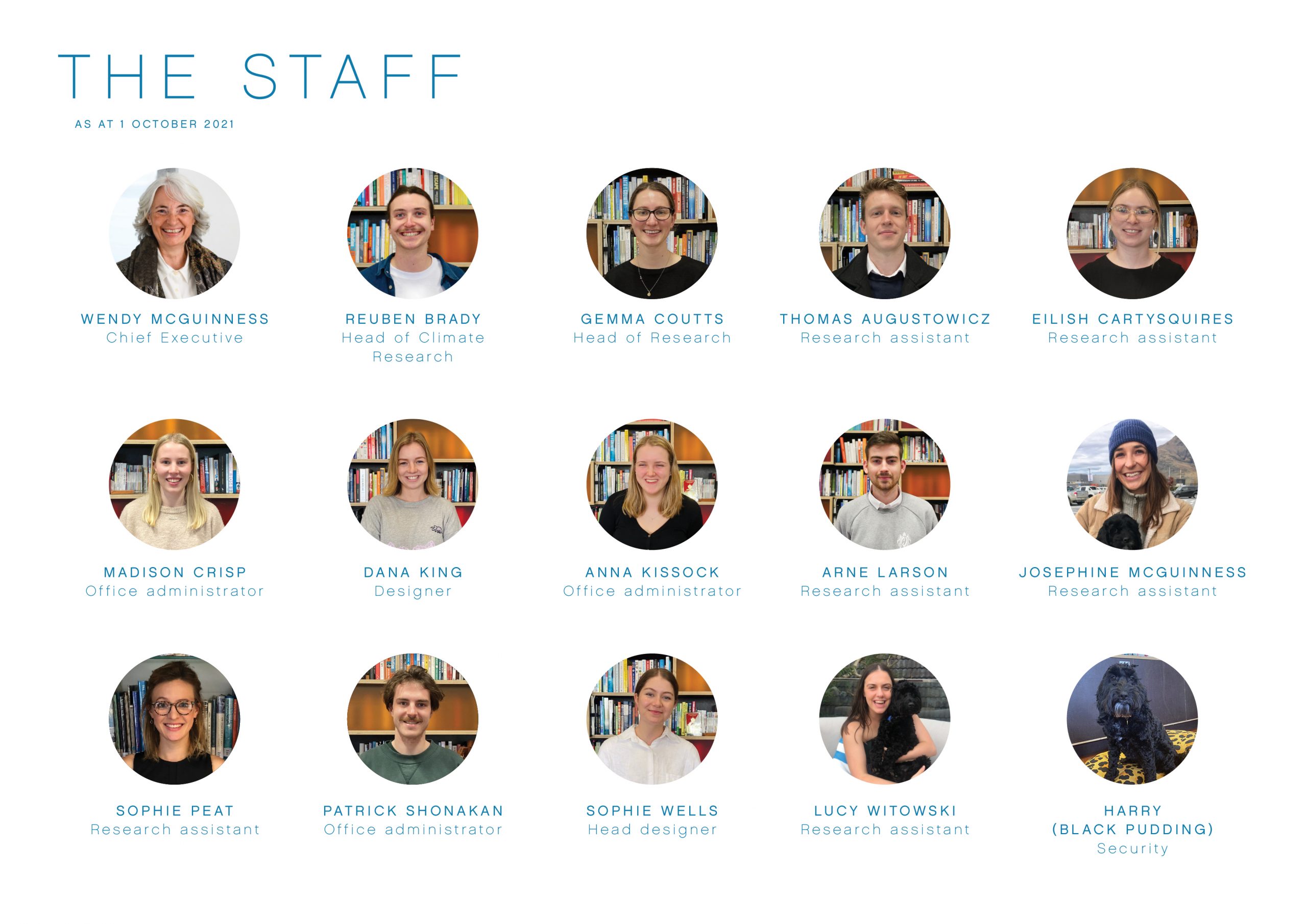


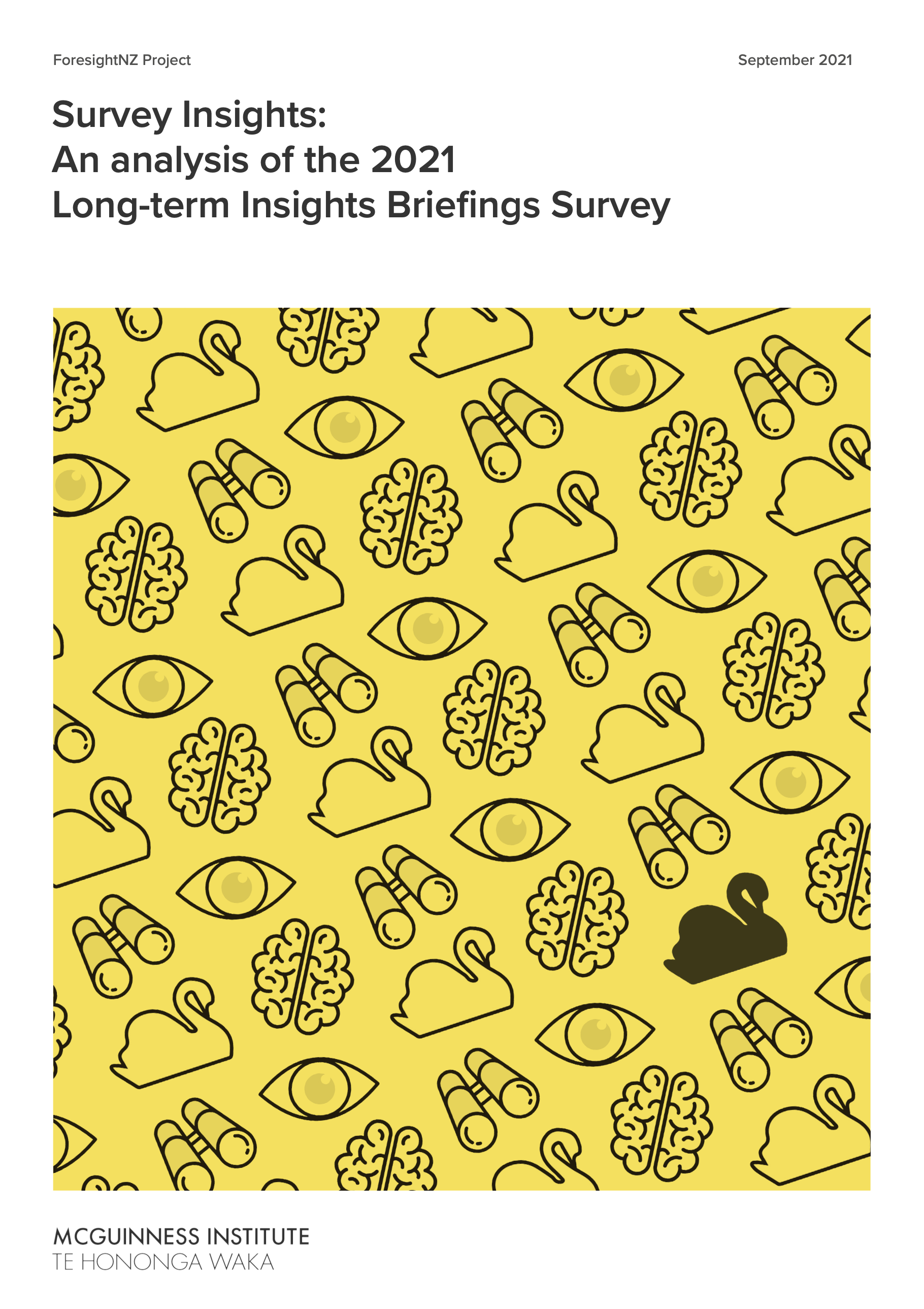
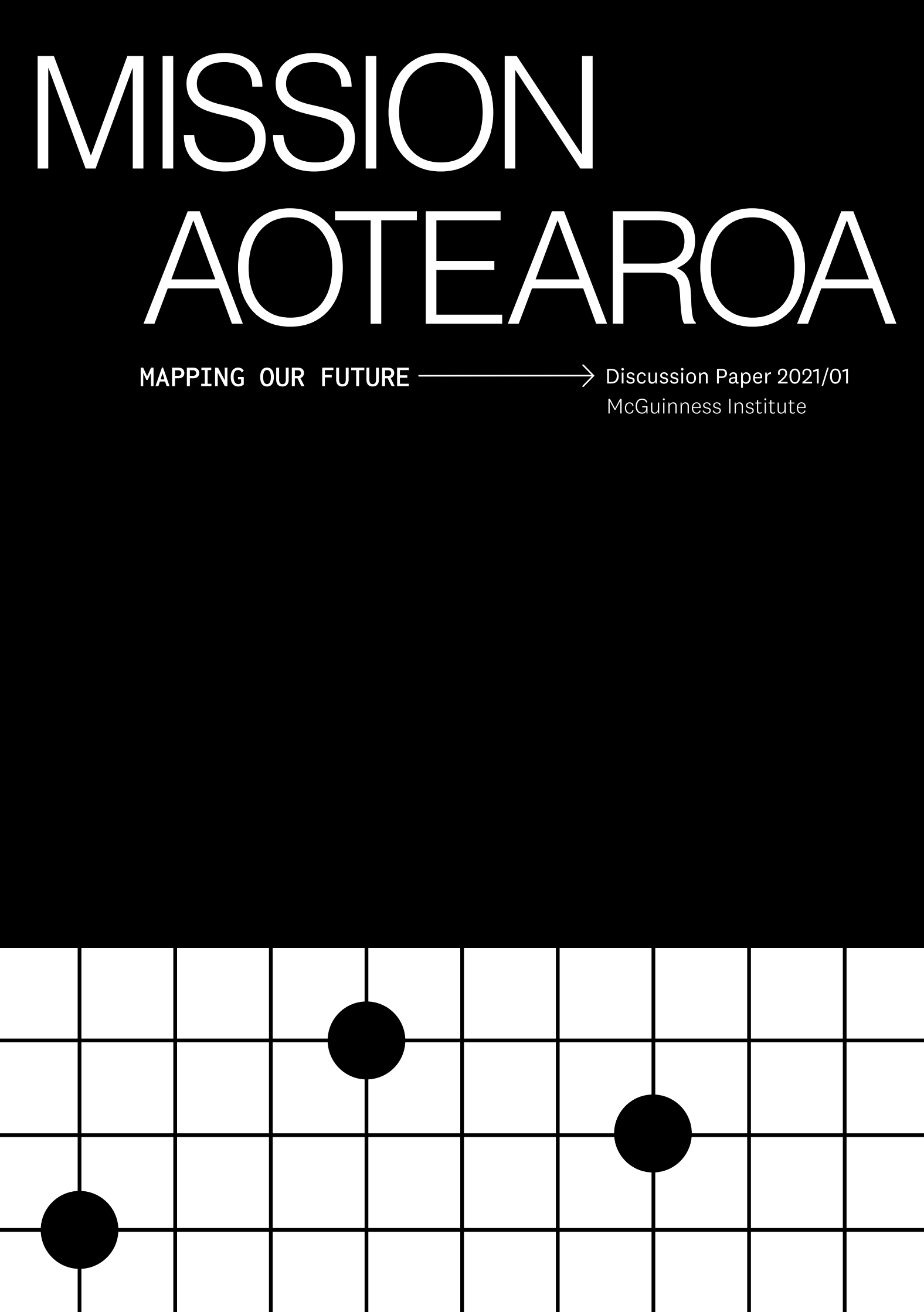
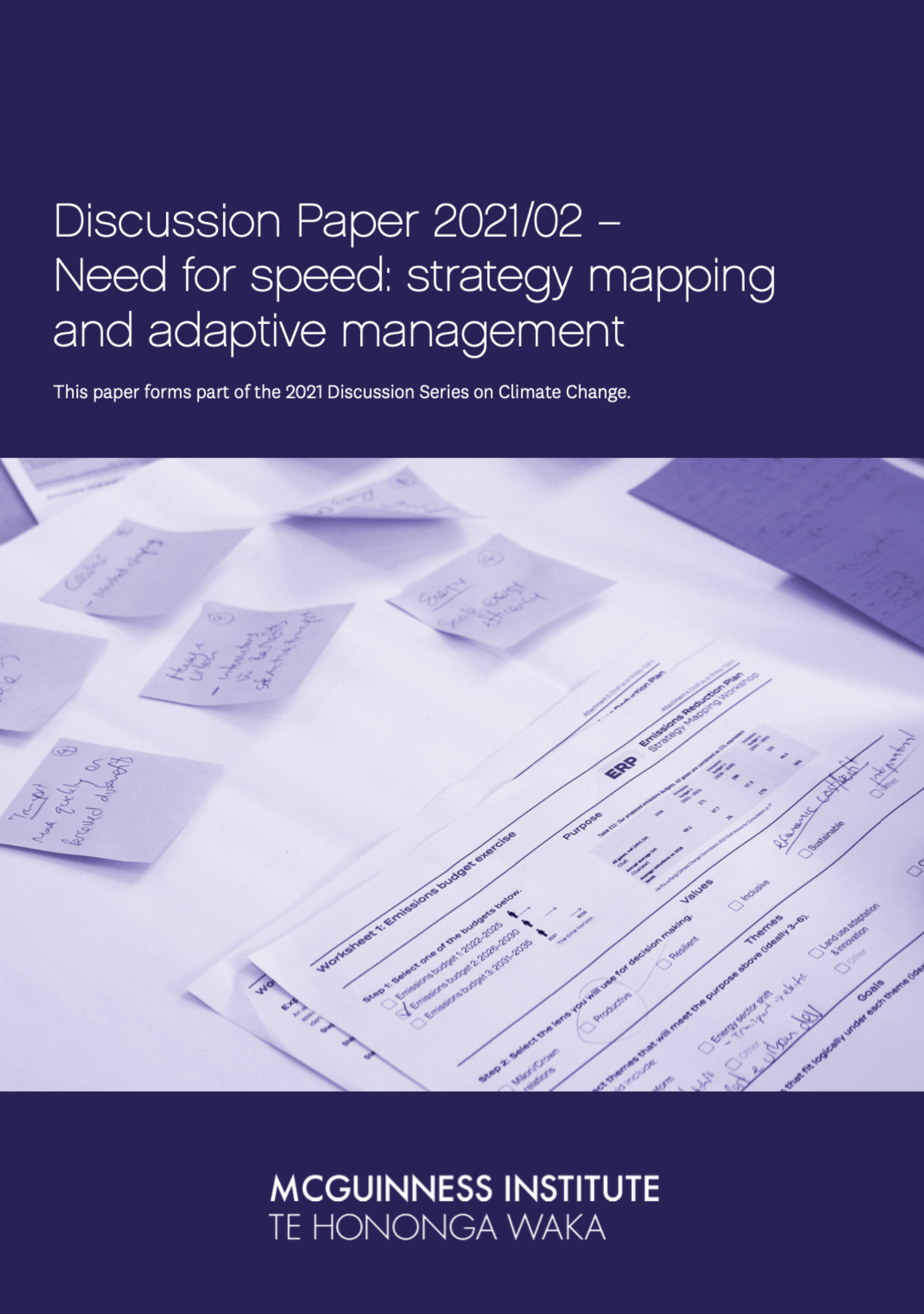
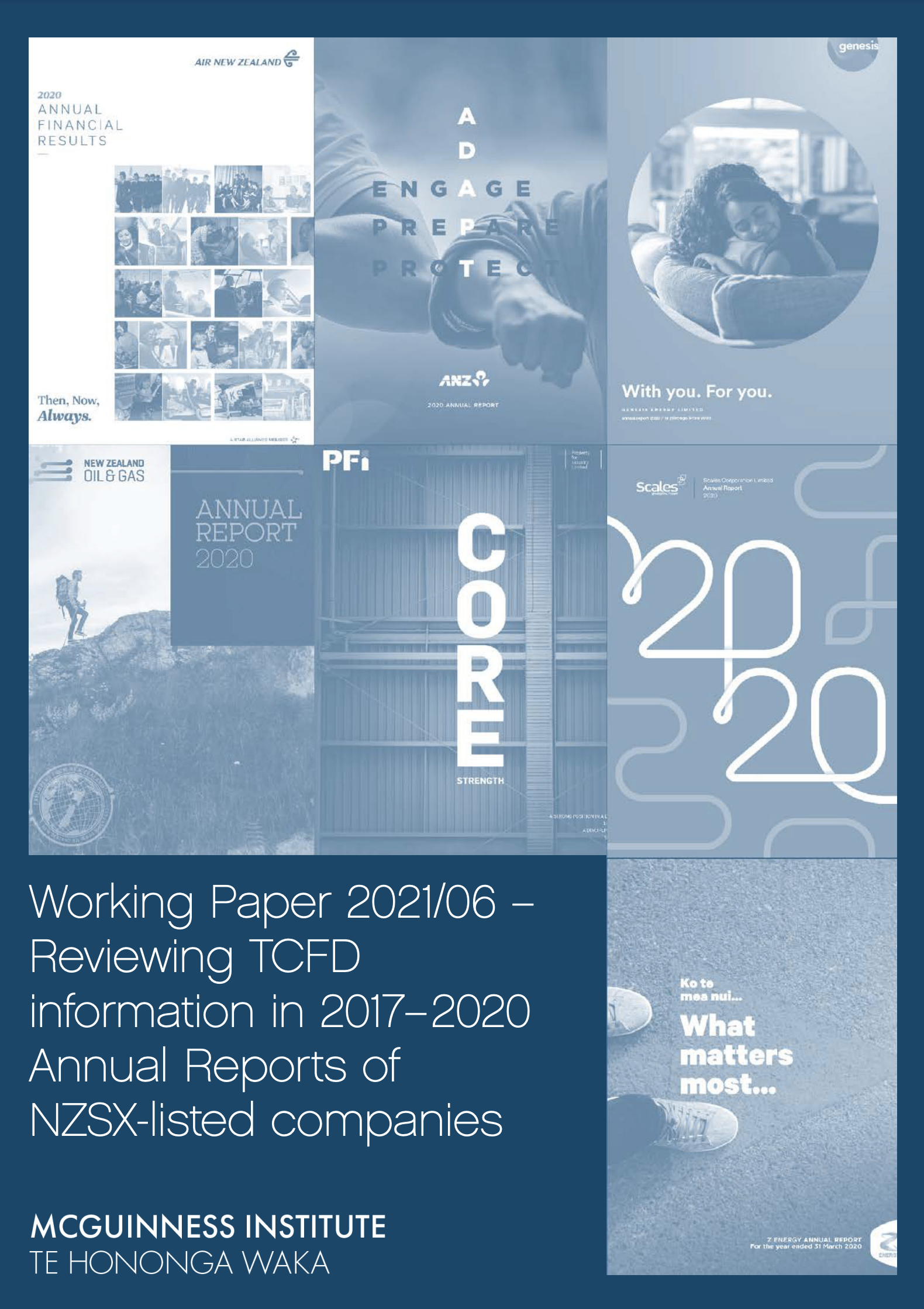
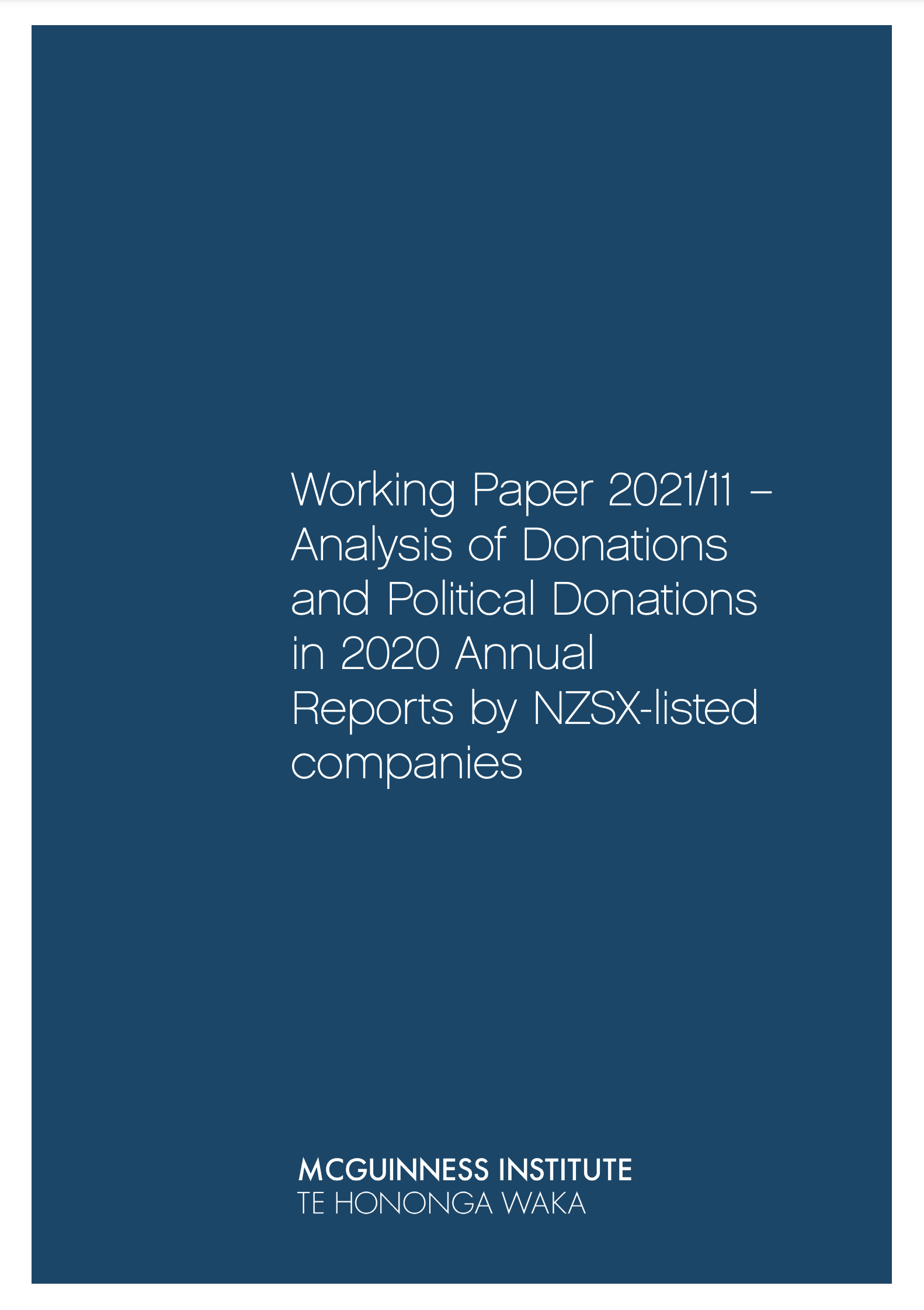
![20210819 Party Relationships FINAL [infographic page]-01](https://www.mcguinnessinstitute.org/wp-content/uploads/2021/10/20210819-Party-Relationships-FINAL-infographic-page-01-2.png)

